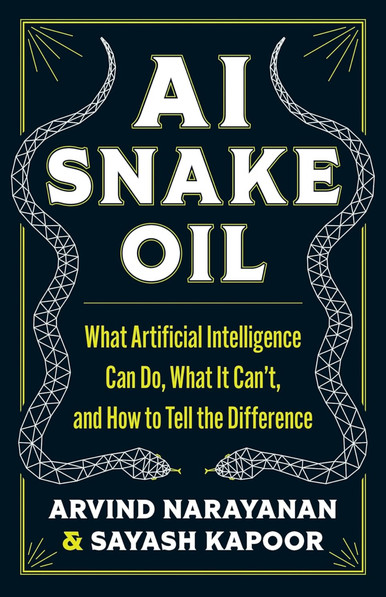https://www.aisnakeoil.com/p/does-the-uks-liver-transplant-matching
I'm a computer science professor at Princeton. I write about AI hype & harms, tech platforms, algorithmic bias, and the surveillance economy.
I've been studying decentralized social media since the late 2000s, so I'm excited to use and write about Mastodon at the same time.
Check out this symposium on algorithmic amplification that I'm co-organizing: https://knightcolumbia.org/events/optimizing-for-what-algorithmic-amplification-and-society
| Website | https://www.cs.princeton.edu/~arvindn/ |
| Substack: AI Snake Oil | https://aisnakeoil.com/ |
| Book: Fairness and machine learning | https://fairmlbook.org/ |
